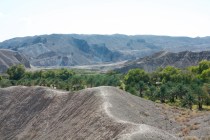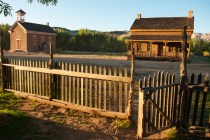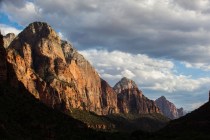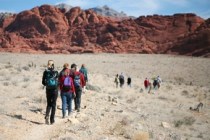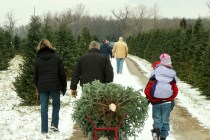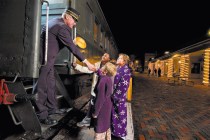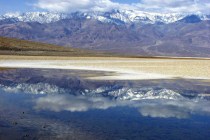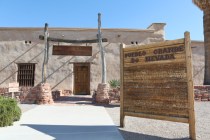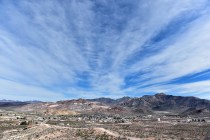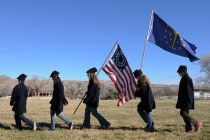Death Valley comes alive during the winter months
As oncoming winter slows the pulse in many of the nation's national parks, it signals a surge of activity in Death Valley. The country's largest national park dedicated to preserving unique desert landforms, wildlife, plants and history, Death Valley remains open year-round. However, the greatest number of visitors prefer the cooler months after fierce and dangerous summer temperatures abate.
The annual Death Valley '49ers Encampment, scheduled for Wednesday through Nov. 14, serves as the unofficial season opener, celebrating the pioneer spirit of the wagon train emigrants that took an ill-advised shortcut during the 1849 California Gold Rush. The 61st annual celebration draws crowds this week to Furnace Creek and other locations in the national park.
The five-day observance promises a busy schedule of activities from early-morning breakfasts to late-night partying. Highlights include plenty of old-time and Western music, an invitational Western art show, craft and lapidary shows, cowboy poetry sessions, tournaments in golf and horseshoes, pioneer costume contests, a parade of horseback riders and horse-drawn vehicles, a "tin Lizzie" road trip, a wagon train, special campfire programs and 4x4 excursions.
The closest national park to Las Vegas, Death Valley lies just 150 miles from Las Vegas by the shortest route to Furnace Creek through Pahrump Valley using Highway 160 to Bel Vista to Death Valley Junction. Longer approaches for Southern Nevadans include coming into the valley through Shoshone to the southern passes, through Daylight Pass using U.S. 95 to Beatty and from U.S. 95 at Scotty's Junction to Scotty's Castle at the park's northern end. Many visitors use one route for approach and another for return to see more of the nearly 3.4 million acres of open spaces encompassed by the park.
Most visitors stay on the park's paved roads and a few short unpaved side roads to points of interest. About 95 percent of Death Valley remains wilderness, largely unvisited except by the most adventurous. Those who want to explore the more than 350 miles of unpaved back country roads within the park need to be equipped with four-wheel drive, detailed maps, emergency supplies, extra gasoline and lots of water. A few trails invite hikers to explore, but the whole park lies open to cross-country rambles. Let someone know where you are headed and when you expect to return. Carry at least a gallon of water per day per person.
Overnight visitors find accommodations at park concessionaires at Furnace Creek Inn, nearby Furnace Creek Ranch and Stovepipe Wells Village and at the privately owned Panamint Springs Resort. You'll need reservations.
Furnace Creek Inn boasts a fine dining room. Furnace Creek Ranch offers a cafe and saloon and places to purchase snacks. The dining facilities and saloon at Stovepipe Wells remain closed this winter and spring for repairs for extensive smoke damage from a kitchen fire in late August.
Visitors planning to camp find several campgrounds scattered throughout the park. The largest campground at Furnace Creek stays open all year. During its busiest season from October through April, campsites cost $18 per night with reservations advised. From May to October, the camping fee drops to $12 with no reservations needed. Four other large campgrounds at Sunset, Texas Spring, Stovepipe Wells and Mesquite Spring near Scotty's Castle stay open October through April for fees of $12 or $14 per night. Four smaller campgrounds located in the back country have no camping fees. To make camping reservations, call (877) 444-6777 or use the Internet at www.recreation.gov.
The park service campgrounds have no sites with hookups for RVs. Many RV campers prefer to stay where there are hookups at RV campgrounds at Stovepipe Wells or Panamint Springs.
Furnace Creek visitors will find the busy visitor center closed for remodeling following the '49ers Encampment.
The 50-year-old facility is overdue for restoration, and improvements are expected to take 18 months to complete. Essential services will be handled by park personnel working in a trailer next to visitor center. Ranger-conducted programs will continue through winter and spring.
Margo Bartlett Pesek's column appears on Sundays.








